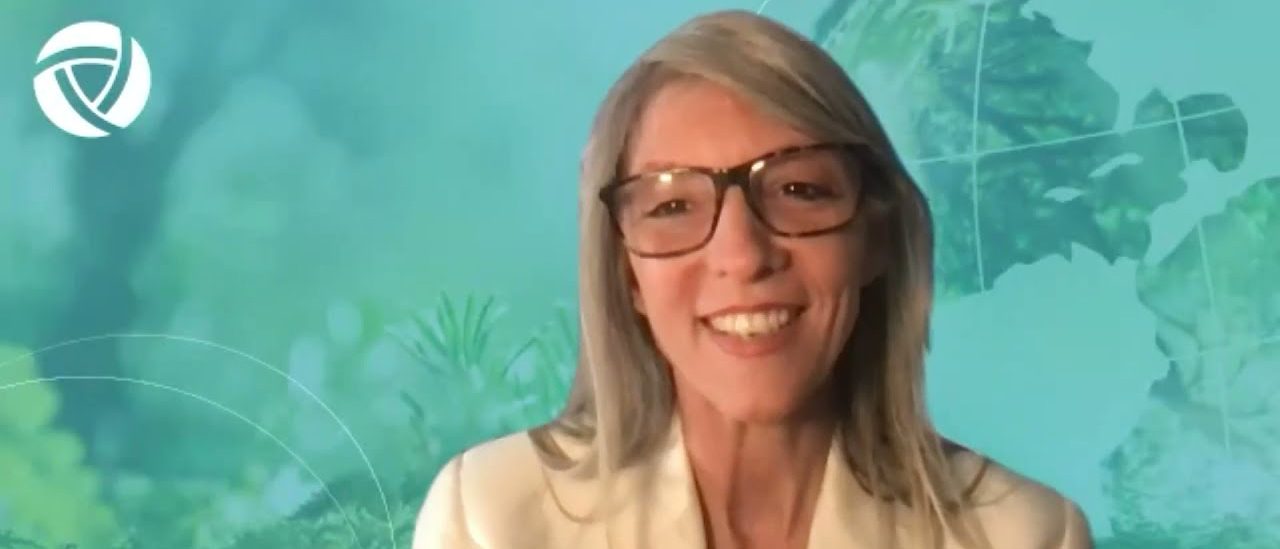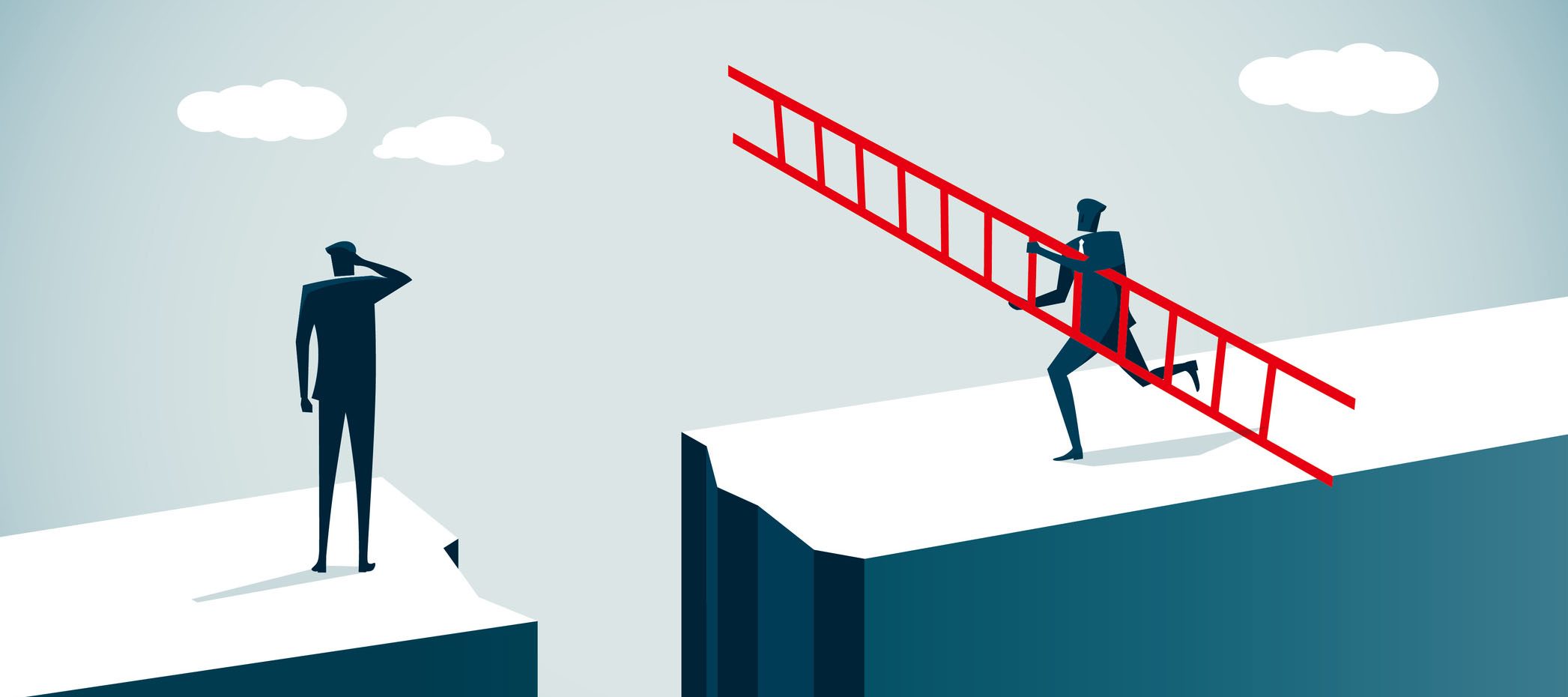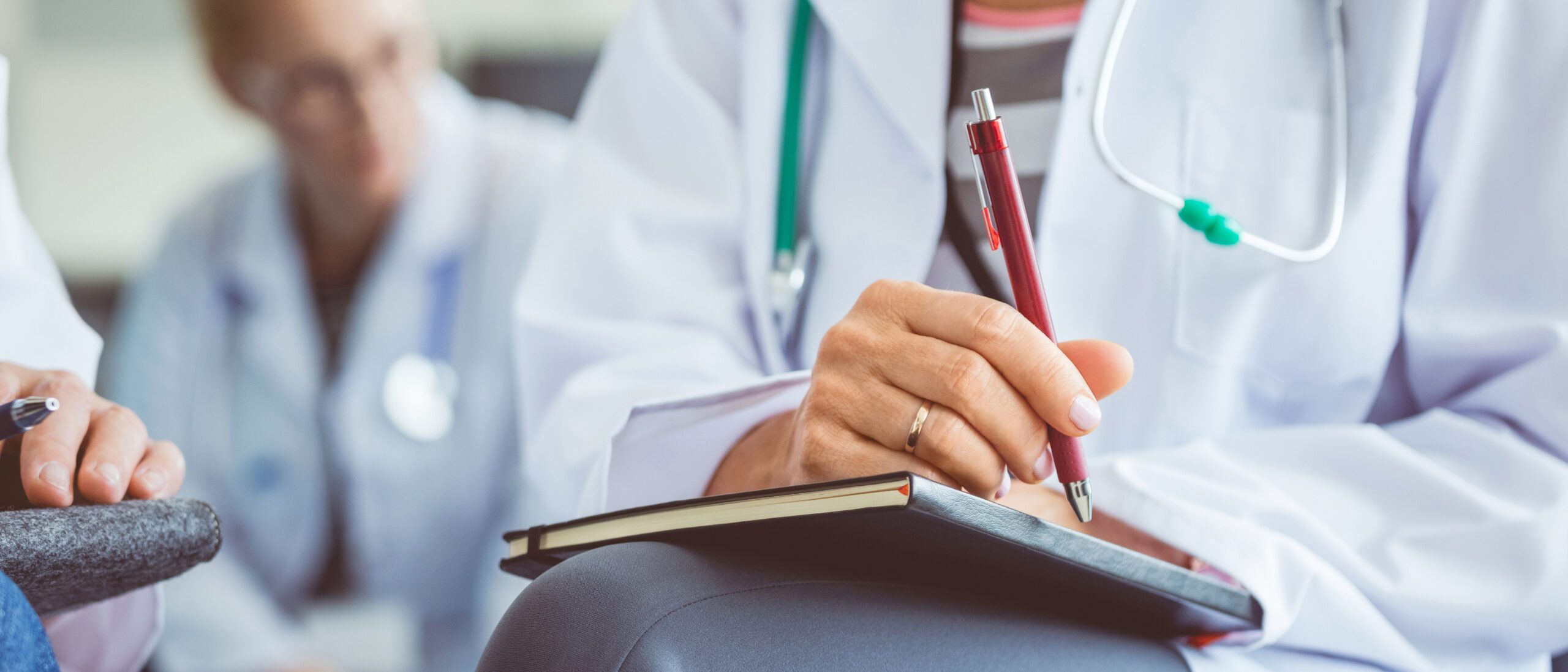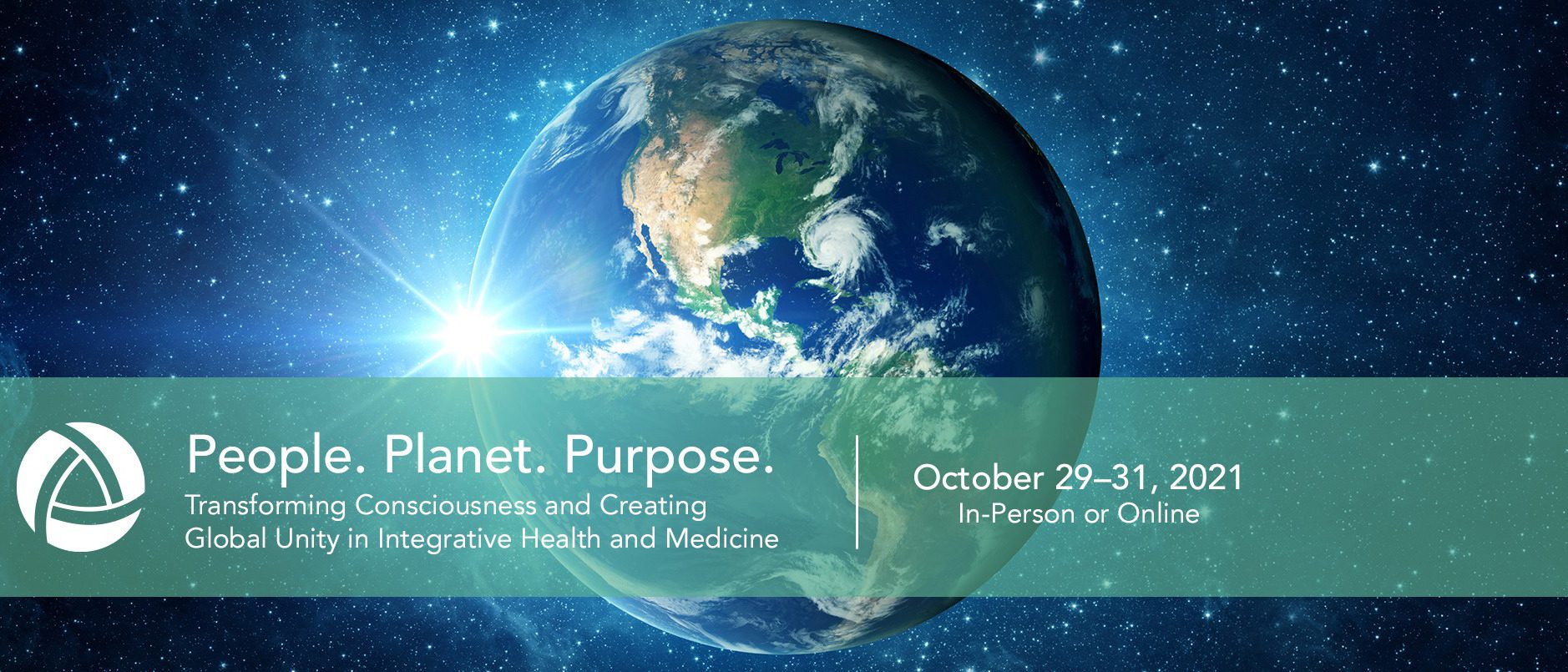Is integrative healthcare finally going mainstream? What barriers has the industry overcome over the years, and what is next?
On our latest episode of Changing Healthcare, we explored these topics with Tabatha Parker, ND, and Executive Director at the Academy of Integrative Health & Medicine.
This organization has helped raise the bar for integrative health by creating a uniform standard for education, raising awareness about the impact of climate change and racial justice on health, and building a system where different providers can collaborate and learn from each other.
Check out an edited version of our discussion below, or watch the entire interview on YouTube.

How Has Integrative Medicine Changed?
Patrick: As a naturopathic physician who’s really been on the front lines of immense change regarding the acceptance and advancement of natural medicine, how has your perspective on healthcare evolved over the years?
Tabatha: Yeah. So, I would say that I feel over the last 20 years, we’ve really reached a more inclusive place. All of the different types of healthcare aren’t necessarily in the main conventional system yet, but there’s certainly much more knowledge about integrative health, about what was originally alternative medicine and then became complementary medicine. And now, integrative health is the newer terminology.
When I was in my early 20s, I herniated a disc while snowboarding. At the time, I didn’t know anything about any type of holistic integrative medicine.
I got shuffled through the conventional system. I got put on opioids, and then I had steroid injections and got to the point of where they were suggesting surgery. The conventional system basically said, “We don’t want to operate on you, but we don’t really have any other suggestions.” I thought, “God, what am I going to do?”

Then, someone suggested I go to see a chiropractor.
I didn’t really know what chiropractors did, so I met with one, and he said, “I work in a team. I work with a personal trainer, and this is what we’re going to do…”
It was my first experience with a truly integrative approach. I worked out three times a week with this trainer, and after two to three weeks, I was pain-free.
It was so outside of the norm then. Now, in every community in the United States, you have more access to integrative providers. A lot of conventional providers like MDs and nurses have also studied integrative or holistic medicine. All of those different professions are coming together to say, “How do we work together better? How do we break out of our silos and really start to rethink healthcare?”
I started naturopathic school a few years after my back incident. In those days, naturopathic training was very siloed. We had a container that we worked in. Acupuncturists were in another, and so on.
But, that’s starting to change. You’re starting to see more voices at the table, more voices trying to co-create solutions for where we are because we have serious issues in this country. We know this.
See our interview with Tabatha Parker on Changing Healthcare:
The Healthcare Crisis in the United States
Patrick: It’s fair to say that in our country, in particular, there’s been a healthcare crisis going on for a very long time.
Tabatha: Yeah. We have to recreate our health system in this country.
The biggest challenge is there is not enough buy-in to universal healthcare. I’ve worked within the WHO arena. When you go to the annual World Health Assembly. You have every country from around the world that has committed to universal healthcare and the General Secretariat says, “Well, everyone except one.”
Everyone laughs and knows he’s referring to the United States. This is a big issue. We have the most expensive healthcare with some of the worst outcomes, and until we can collectively come together to really confront that, we are going to have a real hard time transforming the system.
When an aspirin costs $800 in a hospital, it just doesn’t work. The economics don’t work.
Patrick: You’ll get no argument from me. And it’s such a frustrating discussion that we’re having as a society today. It seems like the proliferation of information has almost made it more difficult to have that conversation. Would you agree?
Tabatha: I would. I think some of the work that we all have ahead of us is to really envision a public health system.
How do you bring public health together with integrative health, with the environmental movement, with consumer organizations?
We need to really think about how to change this. Because right now, in our country, all the power lays with the payers, the insurers, the pharmaceutical industry, and the healthcare system. Everyone else, even the actual clinicians, have no power anymore in the system.
I mean, within the academy, we have a two-year fellowship training in integrative medicine that lots of conventional MDs take, and MDs are burnt out. They’re burnt out by the system.
The whole structure of it needs to change so that we can really put the person at the center of health. Right now, the money is at the center. That’s just how it is, unfortunately.
Related Content: Why Don’t Health Insurance Companies Cover Functional Medicine?
Getting Practitioners to Work Together

Patrick: Even in the integrative health space, there are still practitioners that are all locked in their own lanes. You’ve got chiropractors. You’ve got naturopaths. You’ve got all these different disciplines.
It’s difficult to bring everyone together, but your organization is starting to change the dynamic. Can you talk a little about how you’ve done that?
Tabatha: It’s a work-in-progress, and we’re on a pathway to doing that.
The academy is three different organizations that came together. We were originally the American Board of Holistic Medicine and the American Holistic Medical Association. These were two educational organizations and a membership organization that, historically, were holistic MDs. So they represented the MD world.
They merged to form the academy with the vision of really bringing all of the different professions together, but the roots of those two organizations were MDs.
This year, we merged with the Academic Collaborative for Integrative Health. They represents the five licensed integrative health professions in this country. And all of their academic institutions are certification bodies and their testing agencies. And so, again, this is really the first time that the integrative health professions have really come together with holistic MDs.
And that hasn’t happened before. It’s taken us time to get there.
These professions are part of higher education here in the United States. They have a professional license and formal certification process.
Now, we have leaders that have been doing this work for 30 plus years. We getting all of those visionaries together to think about how we get to the next place, invite more people in, invite more voices.
“The whole structure of [healthcare] needs to change so that we can really put the person at the center of health. Right now, the money is at the center.” – Tabatha Parker, ND
Creating a New Standard for Education & Certification
Patrick: You brought up the educational and academic aspect, developing a formalized training piece that was so lacking before. Can you talk about what your organization has done to advance those academic standards?
Tabatha: We’ve made tremendous strides in creating pathways for CME education and formalized education.
Back in 2015, we created a two-year fellowship — a post-graduate Fellowship in Integrative Health & Medicine.
The majority of clinicians who have taken it are MDs and Dos, partly because of the work we have done to get a national certification for doctors.
Prior to 2014, there was no national certification beyond ABIHM. The goal was to get to a higher level.
There are two medical bodies within the United States that give specialty credentials to MDs — ABMS and ABPS.
In 2014, APBS decided to create a board-certified specialization for integrative medicine. That was significant and lots of leaders from the integrative medicine movement worked together to make that happen. If we were going to be recognized in the United States, that formal recognition is important.
We decided to create that program for all providers, not just MDs and DOs. And the reason for that is to co-train together.

This is a post-graduate program, so we’ve got chiropractors, naturopathic doctors, medical doctors, nurses, and PAs — all of these different providers saying, “Look, if you want to learn this information, then apply it to your specialty, let’s do that.”
The more people who learn what it means to put the patient at the center and look at them holistically, the better. We need to get away from “siloing” patients into different groups, like you’re the diabetic patient or you’re the hypertension kid.
The whole mind, body, spirit, community, and planet — all of those aspects of us are contributing to our health or our disease in today’s world. So, that’s where we feel that we need to create pathways of education that are inter-professional and creates a way for clinicians to learn together and learn from each other.
{{cta(‘b1b9d776-5147-4c5c-b188-1e854407716b’)}}
How Climate Change Impacts Our Health
Patrick: Something that really stood out to me about AIHM’s focus on climate as a part of health as well. How did that become an important part of your mission?
Tabatha: When you are trained in holistic methodologies, you’re really looking at the factors influencing this person in front of me.
There are factors from a physical perspective, mental health, relationships…all of those things impact our health.
We also know that if you’re living in a stressed community situation — where people don’t have access to clean water and healthy food — all of those things have an impact.
We are destroying the planet. There’s just so many problems right now with the way we live, and if we don’t address those things, we will not have health in the future. Our children will not have healthy lives. They will have to deal with the effects of climate change in a way we never imagined, if we don’t start paying attention to that right now.

We’re a member of the Medical Society Consortium of Climate and Health in the United States which has brought together more than 70 medical societies that have joined on, saying we have to make this a priority.
Otherwise, we’ll be facing long term effects on our health due to climate change. We are seeing some of that now from the fires. It’s going to just increase.
For the visionaries that have been building AIHM, the connection to the planet and the environment has always been there.
Patrick: We hear a lot about nutrient depletion from other practitioners we have interviewed. Even if you have a good diet, you aren’t giving the same nutrition that you might expect.
Tabatha: There are so many issues around food we need to change.
You’ve got some geniuses in the food industry that are looking at this. They’re looking at food. They’re talking about organic and healthy eating and all these things because they make you healthy.
So, how do we start partnering as holistic clinicians with other industries that are also looking at this from their perspective? How do you partner with restaurant industry and the environmental movement?
The organic story is a great one about how consumers drove change.
Decades ago, when I went to UC Boulder, there was like one tiny coop that had three aisles of natural products. Now, you’ve got Whole Foods. Every major supermarket has an organic section. So, how did that happen? That was driven by consumers. So I think that this is where also really thinking about, how do we start driving that change more?
How you buy is so important.
Where you spend your money is a reflection of your values. If it isn’t, you should start making it a reflection of your values, even if it’s not convenient.
Part of our challenge is we become a culture of convenience. It’s super nice. You can order something on Amazon and it’s there the next day. How do we make better decisions and drive that change with how we use our power through purchase?
Related Content: What Is a Good Healthcare Marketing Plan During the Pandemic?
What Would You Say to an MD Who is Skeptical About the Academy’s Programs?
Patrick: If I were an experienced MD with decades of experience with conventional medicine, and I started looking at the Academy’s programs and was a bit skeptical – what would you say to me?
Tabatha: I would say, first of all, come and experience the community.
Skepticism is about division. It’s about us versus them. So I would invite that person to come and experience the community and learn in a way where they can also have an experience that’s a “heart experience” and not just a “head experience.”
You used to hear there’s no research in integrative health. That is just not the case anymore. There’s robust research, so I would recommend getting trained in that.
So, if you can’t give answers to your patients beyond, “Oh, those things aren’t tested,” then your patient is going to go on the internet and figure it out. That’s one of the differences now between 20 years ago. Anyone can get so much information now. So, if you want to be a resource to your patients, you’ve got to learn this.
Just because the system of conventional medicine hasn’t caught up yet, doesn’t mean the research is not there. So, I’d say educate yourself.
Patrick: You were talking earlier about how a lot of MDs are burned out because the money-centered state of our healthcare system. They’re feeling that burnout because they’re losing that connection with the patient, and this might be a way to rediscover that connection.
Tabatha: Part of the beauty of the fellowship program is that it’s about rediscovering the connection to yourself. We have created a society that, in many cases, requires that disconnection. And that is partly what is making us sick.
And so the fellowship isn’t just about learning didactic information about integrative health and medicine. It’s about actually experiencing those self-care practices for yourself.
We’ve had so many people whose lives have changed after the program because they realized they are not really living their truth. It changes you. It’s way more than just learning science. It’s the art and science. It’s the combination of those things. The science of health and the science of love at the same time.

Learn More About AIHM
Patrick: Everybody is looking for personal fulfillment. This is a way to access that and, like you said, reconnect with yourself. How can people learn more about you and what AIHM does?
Tabatha: You can connect with us on our website, www.aihm.org or on all of the social media spaces. Our tag is AIHMGlobal, so you can connect with us on Twitter or Instagram, Facebook, YouTube, all @AIHMGlobal.
And I really invite you to attend a conference. Come and meet our community either in-person or virtually.
This year is going to be phenomenal. We have just an incredible line-up of both clinicians and inspirational speakers, and we’re going to be leading our community through a discussion on how do we really bring together the global community. So, it’s going to be interactive and it’s going to be just really, really exciting.
It’s called the AIHM People Planet Purpose Conference: Transforming Consciousness and Creating Global Unity in Integrative Health and Medicine, and it will be October 29th, 30th, and 31st in San Diego, California and virtually.
{{cta(‘1dee25fb-9ccb-490d-b9f1-9e41ebd275c5’)}}

